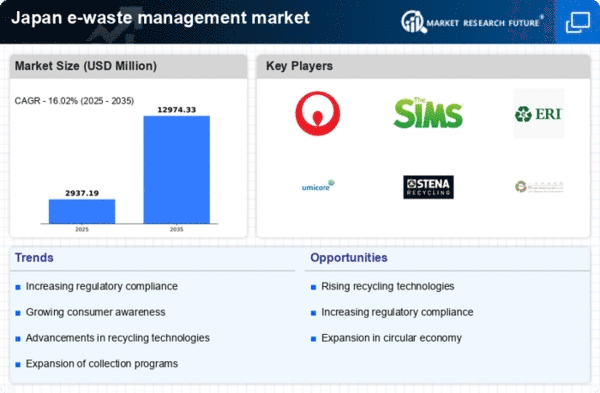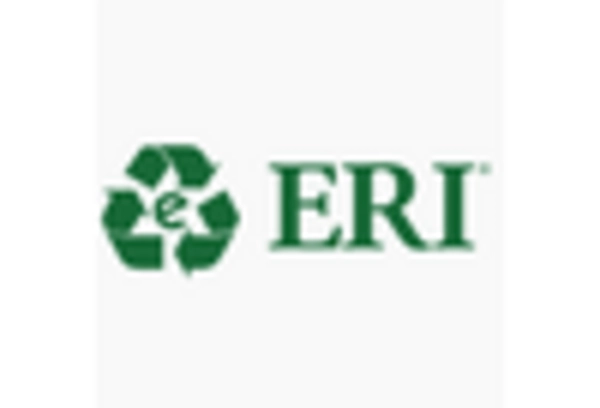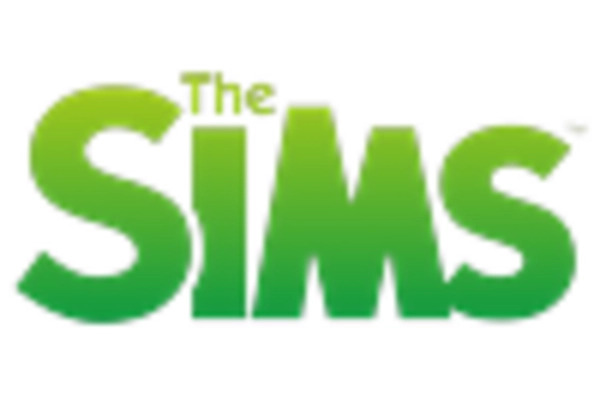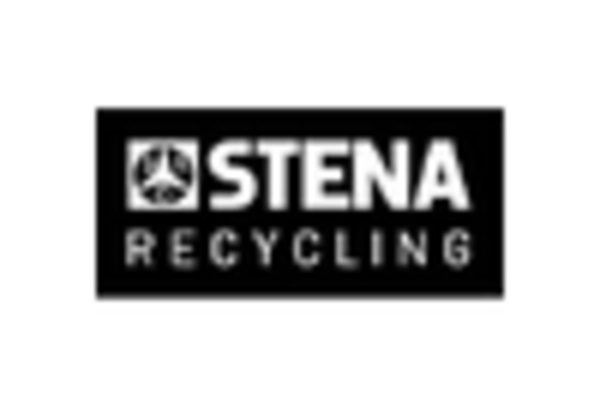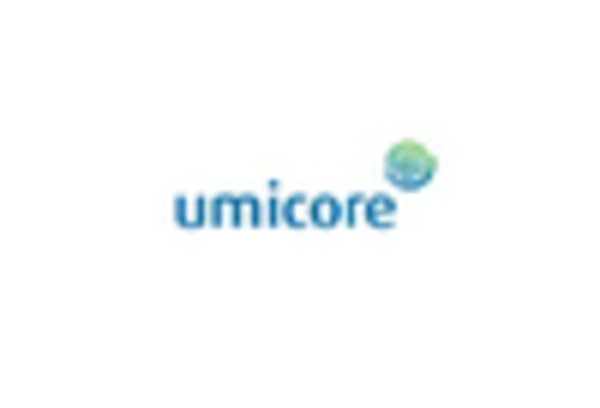Rising E-Waste Generation
The e-waste management market is experiencing a notable increase in the volume of electronic waste generated. With the rapid advancement of technology, the lifespan of electronic devices is decreasing, leading to a surge in discarded products. In 2023, Japan reported approximately 2.5 million tons of e-waste, a figure that is projected to rise by 10% annually. This growing volume of e-waste necessitates efficient management solutions, thereby driving the e waste-management market. The increasing number of households and businesses adopting electronic devices further compounds this issue, as more devices reach the end of their life cycle. Consequently, the demand for effective recycling and disposal methods is likely to escalate, presenting opportunities for companies specializing in e waste-management services.
Increased Corporate Responsibility
There is a growing trend among corporations in Japan to adopt sustainable practices, particularly concerning the e waste-management market. Many companies are now recognizing the importance of responsible e-waste disposal as part of their corporate social responsibility (CSR) strategies. This shift is evident in the increasing number of businesses implementing take-back programs and partnerships with recycling firms. In 2025, it is projected that over 60% of major corporations will have established e-waste management protocols. This proactive approach not only enhances their brand image but also contributes to the overall growth of the e waste-management market by fostering a culture of sustainability and accountability.
Government Initiatives and Policies
The Japanese government has implemented various initiatives aimed at enhancing the e waste-management market. Policies such as the Home Appliance Recycling Law encourage manufacturers to take responsibility for the recycling of their products. This law mandates that consumers return old appliances to designated collection points, which has led to a significant increase in recycling rates. In 2024, the recycling rate for home appliances reached 50%, indicating a positive trend towards responsible e-waste disposal. Furthermore, the government is investing in public awareness campaigns to educate citizens about the importance of proper e-waste management. These initiatives not only promote sustainable practices but also stimulate growth in the e waste-management market by creating a structured framework for recycling and disposal.
Technological Advancements in Recycling
Innovations in recycling technologies are playing a crucial role in shaping the e-waste management market. Advanced techniques such as hydrometallurgical processes and automated sorting systems are being adopted to improve the efficiency of e-waste recycling. These technologies enable the recovery of valuable materials, such as gold and copper, from discarded electronics, which can be worth millions of dollars annually. In 2025, it is estimated that the value of recovered materials from e-waste could reach $1 billion, highlighting the economic potential of effective recycling. As companies invest in these technologies, the e waste-management market is likely to expand, driven by the need for sustainable resource recovery and environmental protection.
Consumer Demand for Sustainable Solutions
The e-waste management market is witnessing a shift in consumer preferences towards sustainable solutions. As awareness of environmental issues grows, consumers are increasingly seeking eco-friendly options for disposing of their electronic devices. Surveys indicate that approximately 70% of Japanese consumers are willing to pay a premium for services that ensure responsible recycling of e-waste. This demand is prompting service providers to enhance their offerings, including convenient collection services and transparent recycling processes. As a result, the e waste-management market is likely to benefit from this consumer-driven trend, as businesses adapt to meet the expectations of environmentally conscious customers.


